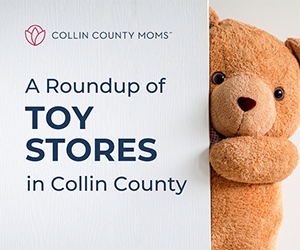 It was a beautiful winter day, the sun was shining, and the kids were out back on the play set. Everyone was bundled and smiling, basking in the sun. The eyes of a child are always full of wonder and wander. Then out of nowhere, my daughter, age three, happened to spot a tiny bird. It was about the size of finch with a bright yellow tuft on its back. It was upside down in our rock garden, underneath the window. It was clearly dead.
It was a beautiful winter day, the sun was shining, and the kids were out back on the play set. Everyone was bundled and smiling, basking in the sun. The eyes of a child are always full of wonder and wander. Then out of nowhere, my daughter, age three, happened to spot a tiny bird. It was about the size of finch with a bright yellow tuft on its back. It was upside down in our rock garden, underneath the window. It was clearly dead.
Movies like Wreck It Ralph and Frozen 2 bring up the words, “dead,” “death,” and “dying,” and I do by best to dodge the meaning of those words for a later date. Most of the time, I say as little as possible to satisfy my kiddos’ questions. I also use the tried-and-true parenting tactic of distraction.
But this time, it wasn’t just a word in a movie or a line out of an Olaf monologue. We had a sentient being in our rock garden that had passed away.
>> RELATED READ :: 10 Kids’ Books on Coping with Difficult Issues & Unique Situations <<
Once it was declared that the bird was, in fact, dead, I said the word out loud so they knew it was okay to say. My emotions were steady, strong, and kind. Then the questions started coming.
“What does dead mean?”
”Where did he go?”
”Why didn’t he take his body?”
“What’s wrong with his eyes?”
“Can we put him in our bug box?”
I chose to tackle the “Where did he go” question first. With the help of my on-call therapist (my mother), I think we did a great job.
“He went to a place where he no longer needed his body. He was done with it on Earth.”
This appeased my three-year-old, but my five-year-old needed more convincing. So I simply said, “He flew to Heaven.”
Now, I know we might all have different beliefs, religious background, etc, but the simple statement of where he was now is the sentiment. Keep it simple.
 We said a tiny bird prayer, and I disposed of the bird once the kiddos were back on the play set enjoying the rest of their weekend.
We said a tiny bird prayer, and I disposed of the bird once the kiddos were back on the play set enjoying the rest of their weekend.
Looking back, here’s the general flow of how the topic of death occurred. I hope it helps you for if/when you need to discuss with your child.
- State what happened. Without over- or under-embellishing, simply say what happened. For example, “The bird died. I’m not sure why, but he is no longer alive.” You can show grief, but try to keep your composure so that you don’t inadvertently frighten your child about the situation.
- Answer the questions. Your child will likely have a lot of questions. Answer them to the best of your ability, and if you don’t know the answer, just say you don’t know. If your child still seems curious, offer to help them find the answer by researching at the library or looking up some answers with them from reputable sources.
- Only give as much information as is appropriate for their age. How much you tell your child will vary on maturation level and age. Honestly is always the best policy.
- Be prepared for emotions. Welcome any emotions your child has. If your child cries, let them cry. If your child is angry, let them be angry. You can’t control their emotions but you can control how you are there for them as a parent. This shows your child they are safe with you and can turn to you in hard times.
- Be prepared for more questions. Don’t be surprised if your child has more questions a day, week, or even months after talking about death. Answer with patience and compassion.
- Close the moment with a prayer or send off to end with a positive sentiment. You can show your child what closure looks like by saying a prayer or farewell to the deceased.
>> RELATED READ :: Handling Grief During the Holidays <<
This experience taught me that by simply answering a child’s questions with straightforward answers, you can teach them a lot about how to process information, grieve (if necessary), and move on.













